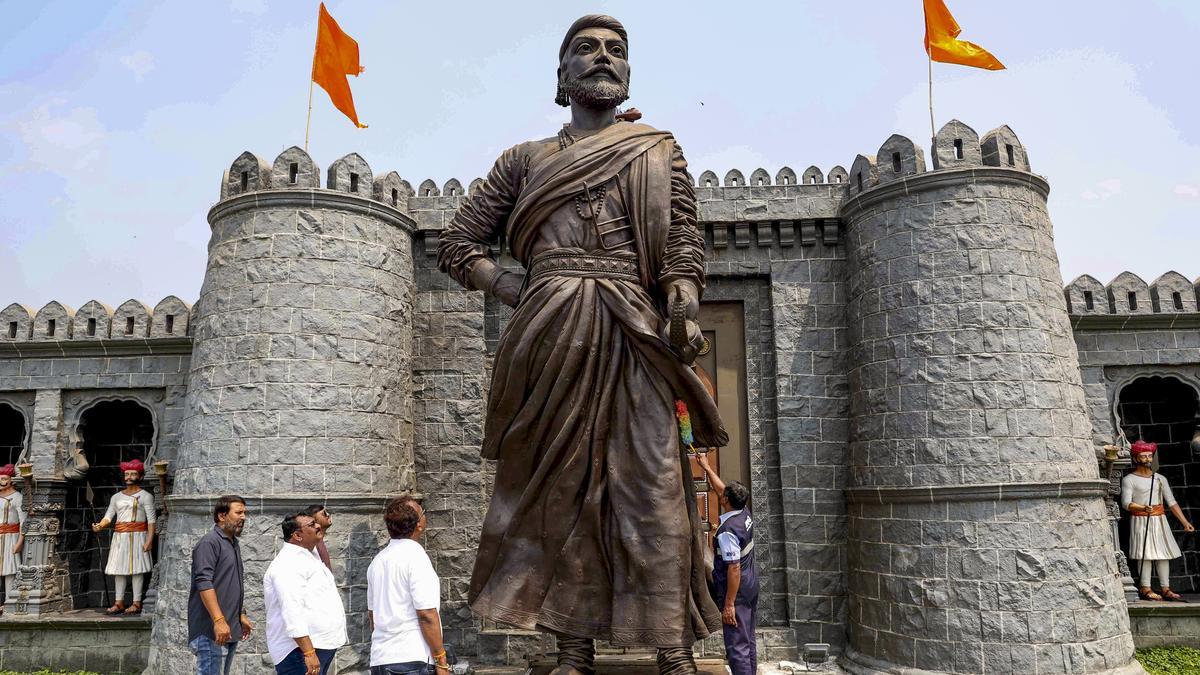John Green in Washington, DC.
(This story is part of The Hindu on Books newsletter that comes to you with book reviews, reading recommendations, interviews with authors and more. Subscribe here.)
Welcome to this edition of The Hindu on Books Newsletter. In 2023, about 1.25 million people died from tuberculosis worldwide, and one in four TB patients who dies belongs to India. John Green, author of bestselling books including The Fault In Our Stars, is a passionate campaigner for eradicating TB. In his new book, Everything is Tuberculosis (Penguin Random House), he writes about the history of the disease, the role of the U.S., and why he decided to do something about it. In an interview with Maitri Porecha, he says with the U.S. stepping back so much [the second Trump administration has pulled the U.S. out of the World Health Organization and frozen funds to USAID], funding to fight tuberculosis is in a real crisis now and it’s not clear who is going to step up. Countries like India have to step up into the vacuum that the U.S. has created, he points out. In other news, it’s also International Booker Prize shortlist announcement day later this evening. The jury led by Max Porter will pick six books out of a 13-strong longlist, and we are hoping Ibtisam Azem’s The Book of Disappearance, translated from the Arabic by Sinan Antoon, set in a scenario when one day the entire Palestinian population disappears from Israel one day, with its chilling contemporary relevance, is on the list. The other books on the wishlist are Banu Mushtaq’s Heart Lamp, translated from the Kannada by Deepa Bhasthi, stories about everyday lives of Muslim women; Solenoid by Romanian novelist Mircea Cărtărescu and translated by Sean Cotter, a reading of history through the pages of a diarist; and French novelist Vincent Delecroix’s Slow Boat, translated by Helen Stevenson about the heartbreaking consequences of an individual – or should the onus be on each one of us? — not responding to frantic cries from help by migrants during a dangerous Channel crossing. The other contenders are Saou Ichikawa’s Hunchback, translated from the Japanese by Polly Barton. In 97 pages, the protagonist with disabilities who lives in a care home and is perpetually online writes about her desires; and Swiss writer Christian Kracht’s Eurotrash, translated from the German by Daniel Bowles, about a wealthy mother-son roadtrip trying, among other things, to unravel dark truths from the past.
In reviews, we read about the persistent gender and caste inequalities in rural India, particularly while fighting a disease like TB, the enduring legacy of Shivaji, and talk to Shandana Minhas about her new book.
Books of the week

Shandana Minhas
In 16th century Mughal India, four unlikely scouts set out on an imperial hunt through the length and breadth of the land, on the Great Moghul’s orders. What they uncover, about their mission and indeed, each other, forms the crux of Shandana Minhas’ new novel, Ferdowsnama (Penguin). Blending a tale of adventure with nuggets of history and wildlife, the Pakistani author, now based in London, paints a vivid picture of what it means to be a woman in medieval India. In an interview with Julie Merin Varughese, Minhas says that she was in the British Library reading imperial memoirs and found silences and spaces in the texts where women’s voices should have been. “I wished I could hear one. Then I read the opening of the surviving text of Gulbadan Begum’s Humayunnama: ‘In the name of God, the Merciful, the Compassionate! There has been an order issued. Write down whatever you know of the doings of Firdaus-makani and Jannat-ashyani…’ — and suddenly I could. I could hear Ferdows.”
Andrew McDowell’s Breathless (Navayana) is a tale that provides a vantage view of how tuberculosis impacts the lives of the rural people of India. He shines a light on the way in which the disease melds with caste equations, poverty, access to health care and other inequalities, providing unique perspectives on the disease, as also the full complement of a life lived with TB, or, in the midst of it, writes Ramya Kannan in her review. “Ambavathi, the town McDowell chooses to set the story, is a village in Rajasthan where the dust irritates the lungs. It is also a village where the residents are mostly Dalits or Adivasis, and several inequalities coexist, and exacerbate, with rampant tuberculosis. Setting off on an engagement with ‘atmospheric entanglements’, the author converts relevant elements of nature into chapters of his book: breath, dust, air, mud, clouds, forests, and in good measure, the afterlife.”
Spotlight

April 3 was the death anniversary of Chhatrapati Shivaji Maharaj who passed away at 50 in 1680. In a two-part series Prathmesh Kher looks back at his enduring and radical legacy. Poring over books, charters and memoirs, Kher provides a peek into what made the king a transformative force in a feudal age. He shines a light on the Maratha king’s liberal and progressive attitude with regards to the various religions under his rule, particularly when contrasted with Aurangzeb’s. It’s a lesson which needs to be remembered in contemporary India, as Shivaji stood up to both Hindu orthodoxy and Islamic fundamentalism.
Browser
-
Six economists were at the forefront of the battle against global poverty that began after World War II. Amartya Sen, Manmohan Singh, Mahbub ul Haq, Jagdish Bhagwati, Rehman Sobhan, and Lal Jayawardena were all born as colonial subjects in the British Empire and studied at Cambridge University. They played a crucial role in global debates about poverty and development, as Apostles of Development (Penguin) by David C. Engerman underscores.
-
Dutch historian Rutger Bregmen’s Moral Ambitions (Bloomsbury) studies the impact of several heroes of history, and asks: what qualities do these social pioneers have in common? What made them so persuasive, influential and effective that they could not be ignored? How can we develop those qualities, too? Bregmen argues that anyone can dedicate their abilities, and time, to finding solutions to the world’s biggest problems.
- Ammi’s Kitchen: Heirloom Recipes from Rampur (Roli Books) is a tribute to all grandmothers who have been the torchbearers of saving and passing on the legacy of classic traditional family recipes. Pernia Qureshi’s grandmother was married at a young age into the princely state of Rampur. With the influence of her hometown, she created a food language that was uniquely her own. This book is a collection of recipes she mastered over the years.
-
All three books in the late Paul Auster’s The New York Trilogy, City of Glass, Ghosts, and The Locked Room, have been adapted into a graphic novel. Published by Penguin, Paul Karasik is the mastermind behind the three adaptations, and directed the art of all three books. City of Glass is illustrated by the award-winning cartoonist David Mazzucchielli, the second volume, Ghosts, is illustrated by New Yorker cover artist, Lorenzo Mattotti, and The Locked Room is adapted and drawn by Karasik himself. These adaptations take Auster’s sophisticated wordplay and translate it into the comicsphere. They ensure that Auster’s unique take on detective and noir fiction will gain a new, wider readership.
Published – April 08, 2025 01:44 pm IST
